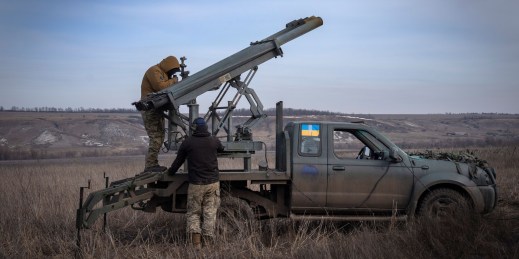Latest Archive
Free Newsletter

Recent visits to China by Biden administration officials have sought to humanize the bilateral relationship and broaden it out beyond the tensions on display between the two governments. With limited access to uncensored information in China and people-to-people exchanges at very low levels, this is harder than perhaps ever before.
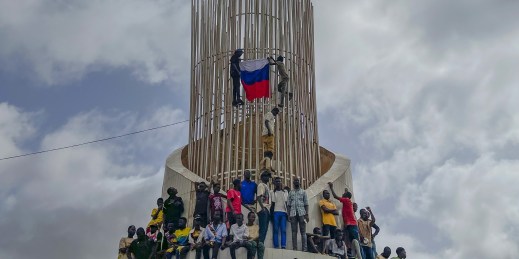
The recent decision by the military junta ruling Niger to revoke the country’s security partnership with the U.S was just the latest in a series of developments that have remade the geopolitical landscape of West Africa. The result is a more competitive playing field for the outside powers seeking influence in the volatile region.

The regime of Venezuelan President Nicolas Maduro will probably remain in power after elections scheduled for late July. But the past few weeks have been unusually positive ones for Venezuela’s opposition. The faintest glimmers of optimism have begun to appear due to events unfolding in ways that have caught the Maduro regime off guard.

Last year, Chinese automaker BYD clinched a deal to take over Ford Motor’s factory in Bahia, Brazil, after Ford decided to withdraw from the Brazilian market. BYD is already the world’s largest producer of electric vehicles, and the move into Brazil is an effort to further consolidate its early conquest of EV markets in the Global South.

“America always does the right thing, after exhausting all other possibilities.” Those words, attributed to Winston Churchill, perfectly capture what finally transpired late last week, when the U.S. Congress finally passed a series of supplemental defense spending bills earmarking military aid for Ukraine, Israel and Taiwan.

For decades, Panama has enjoyed relative economic prosperity and political stability compared to its neighbors. But after years of simmering popular discontent that culminated in massive protests last year, and amid political uncertainty ahead of an upcoming presidential election, its economic prospects look grim.
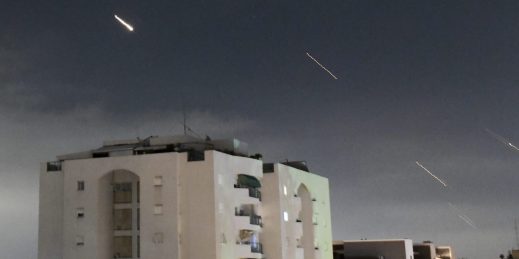
Iran’s massive strike on Israel two weeks ago turned into something of a gift. Some of the benefits will accrue personally to embattled Israeli Prime Minister Benjamin Netanyahu, but those are likely to fade. But the boost Iran gave to Israel collectively has already had important repercussions, some of which could be lasting.
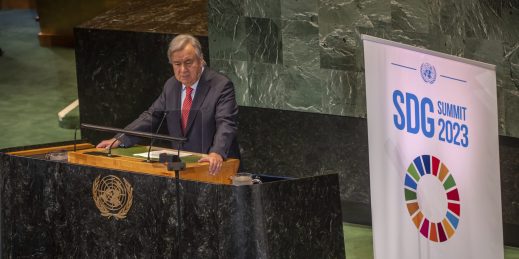
The agenda for global development, including its governance and architecture, clearly needs change. Yet, making sense of our development architecture in today’s context is a complicated matter: Global development faces a range of complex, interconnected challenges that must be tackled in a rapidly changing world.
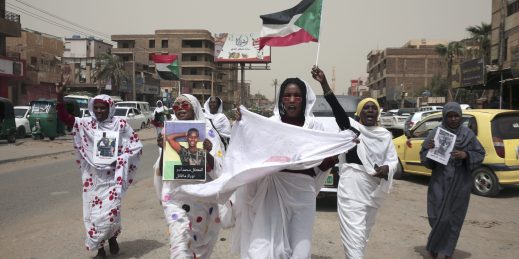
Sudanese women were at the forefront of the country’s April 2019 pro-democracy protests. Today, they play pivotal roles as peacebuilders in Sudan’s ongoing civil war. But they have been entirely sidelined in decision-making and efforts to end the violence. After a year of war, it’s time to include women at the negotiating table.
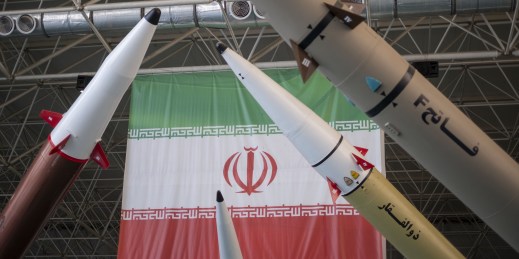
More than a week later, there remains considerable uncertainty about Iran’s unprecedented attack on Israel using its long-range strike capabilities. As more information becomes public, it is important to be mindful of three important considerations to understand the attack’s implications on military dynamics across the Middle East.
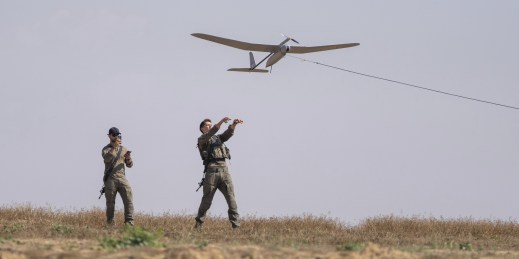
Israel’s use of an automated system to identify targets in Gaza has raised alarm over the advent of autonomous weapons systems. But the fact that Israeli soldiers were “in the loop” in this case gives the concept of AI-powered “Killer Robots” new meaning, while also potentially giving campaigners a new direction for advocacy efforts.




